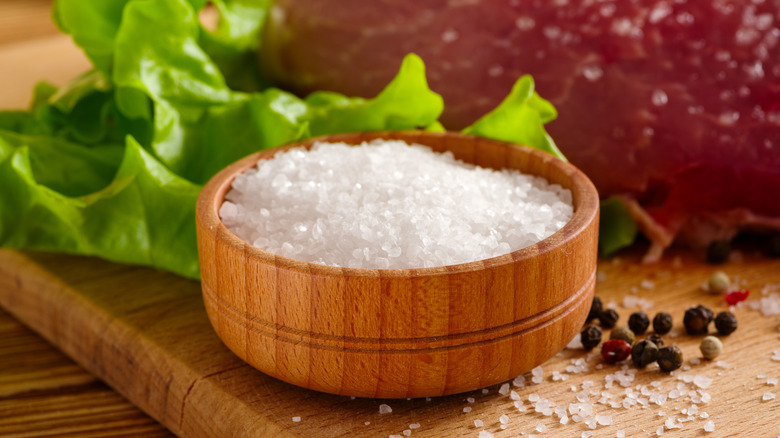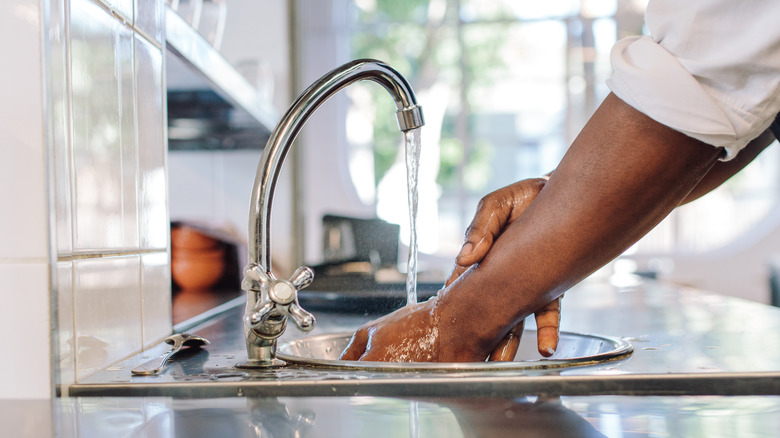The Hidden Danger Lurking In Your Salt Cellar
Those shallow bowls of salt kept near the stove, known as salt cellars or salt pigs, come in styles for everyone, from polished bamboo bowls and stylish glass containers to simple ceramic dishes. Not merely a trendy kitchen accessory, salt cellars help improve cooking skills, allowing home cooks to judge seasoning amounts with their fingers and sprinkle it high and wide over a variety of dishes. They also help keep all your essential types of salts, such as kosher salt for cooking and fleur de sel for finishing, within easy reach. This encourages home cooks to season their dishes from beginning to end, creating more flavor than they would by merely salting food at the table.
However, the repeated grasping of salt with our hands during food prep poses a concern: Can a salt cellar become contaminated if, say, our hands have touched raw meat or a dirty surface? Unfortunately, it seems the answer is yes.
Science Direct conducted an experiment where testers handled salmonella-tainted raw meat and then salt for cooking. Even though salt does kill bacteria (it's been used as a food preservative for thousands of years), researchers found that salmonella "can survive in cooking salt for several months." They also noted that your kitchen's surfaces and equipment are susceptible to cross-contamination — meaning that if you handle raw meat and then pick up your salt cellar, bacteria can be transferred to the cellar as well.
Don't panic: It's pretty easy to keep salt cellars clean
If cross-contaminated salt is used during cooking, it's possible that bacteria will be destroyed by the heat. However, it's a real risk if contaminated salt is used in uncooked dishes like salads. But before you throw out your salt cellar, know that there's a simple remedy. The Science Direct report on cross-contamination of cooking salt makes several references to "unwashed hands." So, the obvious solution to keeping salt cellars clean is to wash your hands. Do this often during cooking, especially after handling raw meat and before reaching into the salt cellar for a big pinch of salt.
Since they're stored in food preparation areas and near the stove, it's easy for salt cellars to get dirty and grimy — and for food-borne bacteria to get transferred to the bowl. Make a habit of regularly emptying out and washing salt cellars and their lids. Dry them thoroughly before refilling, since moisture will make salt clump.
If you've got a big meat-cooking job on your hands, another easy way to avoid cross-contamination is to pour some salt from the cellar into a separate small bowl for that recipe only. Then, when the cooking is finished, discard the leftover salt.

